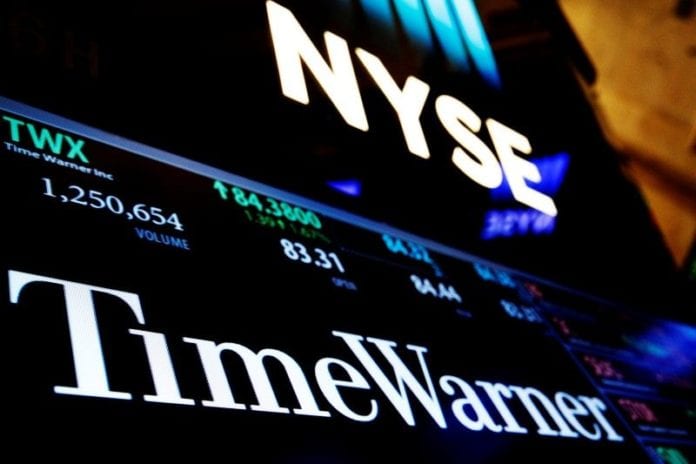$85.4 billion deal would be largest acquisition since Verizon bought out Vodafone
“The future of video is mobile and the future of mobile is video,” AT&T told investors this weekend as it announced an ambitious plan to buy Time Warner for $107.50 per share. Time Warner stock opened lower this morning, trading around $87 per share, as investors digested multiple reports of antitrust concerns surrounding the merger.
This morning AT&T CEO Randall Stephenson described the merger as “vertical integration,” with “no competitors taken out of the marketplace.” Stephenson is clearly hoping this merger will not suffer the same fate that befell AT&T’s last major merger plan, a $39 billion deal to buy T-Mobile US from Deutsche Telekom that was ultimately blocked by the U.S. Department of Justice.
The purchase of Time Warner would give AT&T a number of valuable media properties including CNN, HBO, Warner Bros. and TNT. Early this morning AT&T released a statement saying CNN will maintain complete editorial independence if the deal goes through. Stephenson also said AT&T has no plans to restrict access to any Time Warner content.
From a financial perspective, AT&T said the merger would be accretive within the first year, would increase its dividend coverage and would improve its growth profile while lowering capital intensity. Wireless and wireline networks periodically require high levels of investment and AT&T wants to complement those businesses with the less capital-intensive media businesses.
Of course there are many other ways that Time Warner complements AT&T’s wireless, wireline and satellite TV businesses. AT&T is well positioned to deliver content and its board believes that in the end consumers value content even more than network quality.
“Premium content always wins,” Stephenson said in a press release. “It has been true on the big screen, the TV screen and now it’s proving true on the mobile screen. We’ll have the world’s best premium content with the networks to deliver it to every screen. A big customer pain point is paying for content once but not being able to access it on any device, anywhere. Our goal is to solve that.”
But first AT&T will probably need to solve some political issues. The Senate Judiciary Subcommittee on Antitrust, Competition Policy and Consumer Rights plans to hold a subcommittee hearing on the deal next month. Republican presidential candidate Donald Trump and Democratic vice presidential candidate Tim Kaine have both expressed concerns about the deal as well.
Stephenson said this morning on CNBC that he expects regulators to impose conditions on the deal. He also acknowledged that ultimate approval is uncertain, saying “our experience is that the data and the law and the regulations will dictate whether the deal gets approved or not.”
This morning on Bloomberg Radio, former Securities and Exchange Commission Chairman Arthur Levitt noted that the regulatory implications of this deal represent a huge moneymaking opportunity for Congressional lobbyists. He expects a number of lawmakers to weigh in on the proposed transaction.
The potential deal touches millions of stakeholders, from employees to customers to shareholders. The last U.S. takeover of this size was Verizon Communications’ $130 billion deal to buy the 45% of Verizon Wireless that it did not already own. The regulatory implications of that deal were much less complex than they are this time around, because Verizon’s purchase did not really impact its operations; it simply adjusted the ownership of the business.
Image source: finance.yahoo.com
Follow me on Twitter.

